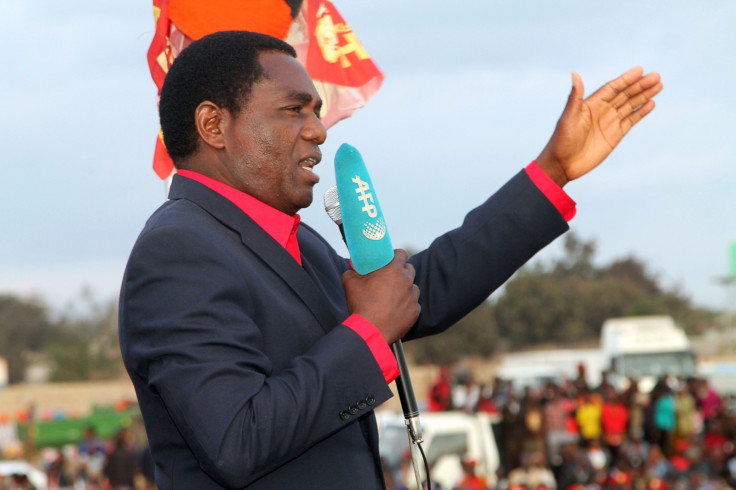Zambia's UPND leader Hakainde Hichilema officially charged with treason
The charge allows no bail and can carry the death penalty.

Zambian opposition leader Hakainde Hichilema has been formally charged with treason today (12 April), according to the chief of police. The charge allows no bail and can carry the death penalty.
The authorities accuse Hichilema – who presides over the United Party for National Development (UPND) – and a convoy he was travelling with of ignoring orders, refusing to give way to President Edgar Lungu's motorcade as it passed through Mongu, 500 km (300 miles) west of the capital Lusaka on Sunday (9 April).
"It has been established that the opposition leader disobeyed police orders to clear the way, thereby putting the life of the head of state in danger," Inspector General Kakoma Kanganja told Reuters news agency.
"We have today jointly charged and arrested Mr Hichilema and five others with treason."
Kanganja added the politician was charged with disobeying lawful orders and using insulting language.
"We shall ensure that those that would want to cause unnecessary anarchy are arrested and prosecuted," the Inspector General said.
Hichilema was arrested in connection with the allegations yesterday, following a police raid on his residence, after which the opposition leader accused Lungu of trying to kill him.
"This guy, Lungu, he wants to kill me. He's basically broken into my house and put his men around. The whole night they were harassing my wife and children (...) They have beaten all my workers," Hichilema said during the raid, before he was taken in for questioning.
Neither Hichilema nor his lawyer was available to comment.
The 54-year old unsuccessfully ran for the top seat five times in 2006, 2008, 2011, 2015 and 2016. Hichilema still contests losing to Lungu during August 2016's tightly contested election which was marred by allegations of rigging, with both sides accusing the other of inciting violence for political gain.
Following the elections in August last year, the government tightened its control over the media after the state broadcasting authority suspended broadcasting licences for three independent media houses it claimed had posed a risk to peace and stability during the poll.
© Copyright IBTimes 2025. All rights reserved.






















